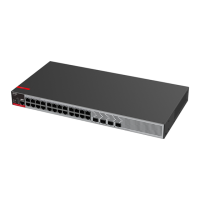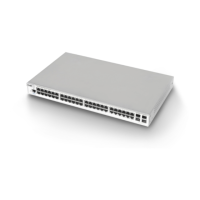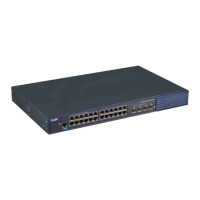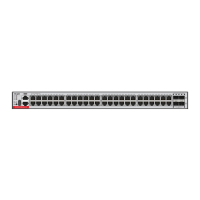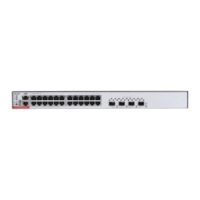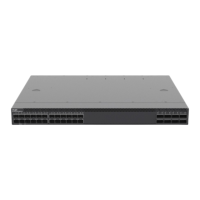Command Reference RIPng Commands
4.11 redistribute
Use this command to redistribute the route of other routing protocols to RIPng. Use the no form of this
command to remove the redistribution configuration.
redistribute { connected | ospf process-id | static} [ metric metric-value | route-map
route-map-name ]
no redistribute { connected | ospf process-id | static} [ metric metric-value | route-map
route-map-name ]
Redistributes the connected routes to RIPng.
Redistributes the OSPF routes to RIPng.
process-id indicates the OSPF process number, and the range is
from 1 to 65,535.
Redistributes the static routes to RIPng.
(Optional) Sets the metric value for the route redistributed to RIPng.
(Optional) Sets the redistribution route filtering.
By default, the routes of other routing protocols are not redistributed.
If the default-metric command is not configured, the default metric value is 1;
By default, the route-map is not configured;
By default, all sub-type routes in the specified routing process are redistributed.
Routing process configuration mode.
This command is used to redistribute the external routes to RIPng.
It is unnecessary to transform the metric of one routing protocol into another routing protocol in the
process of the route redistribution, for the metric calculation methods of the different routing protocols
are different. The RIP and OSPF metric calculations are incomparable for the reason that the RIP
metric calculation is hop-based while the OSPF one is bandwidth-based.
The instance, from where the routing information is redistributed to the RIPng, must be specified in
the process of configuring the multi-instance protocol redistribution.
The following example shows how to redistribute the static route, use the route map mymap to filter
and set the metric value as 8:
Ruijie(config)# ipv6 router rip
Ruijie(config-router)# redistribute static route-map
mymap metric 8
Defines the default RIPng metric value when

